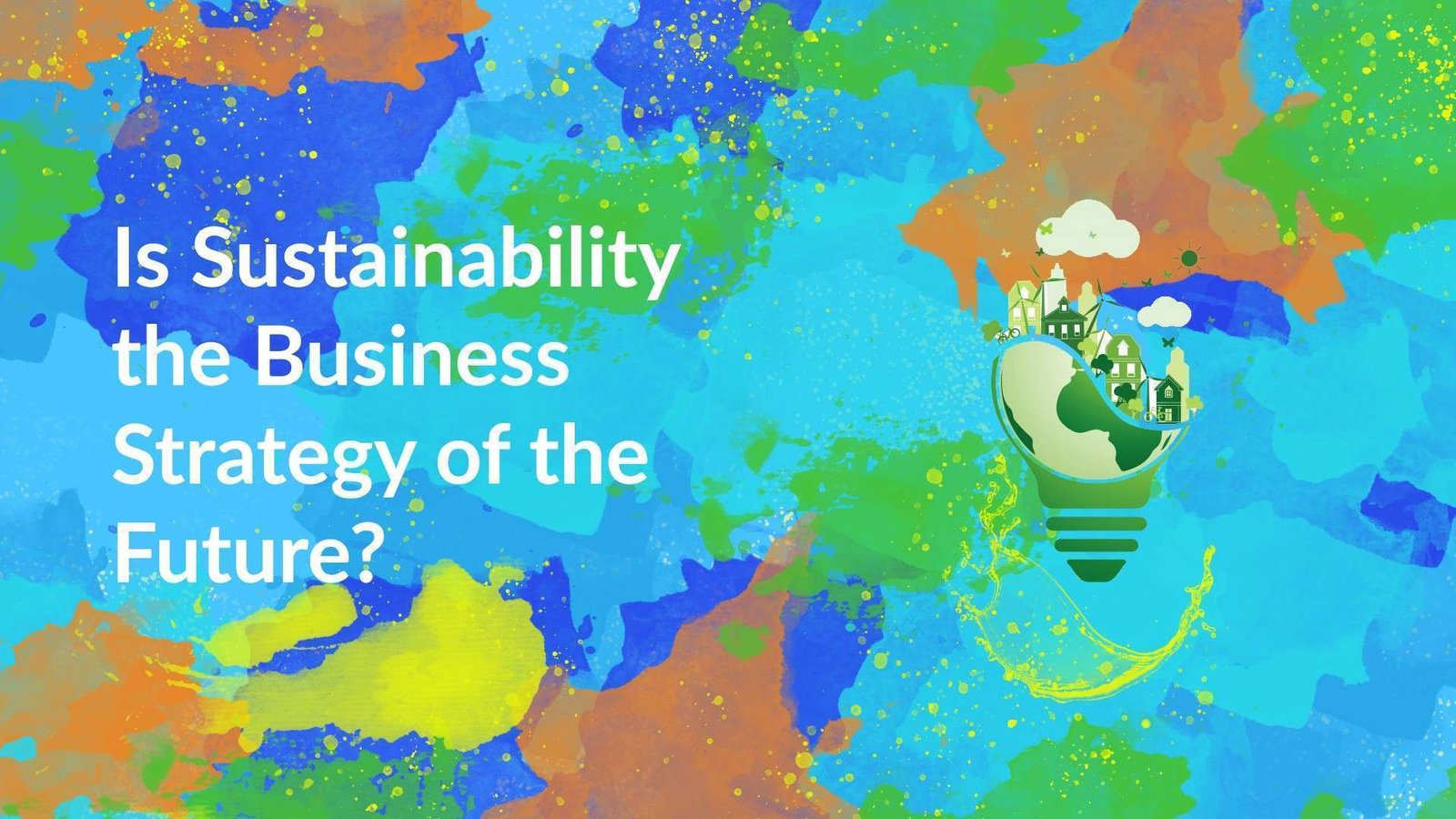Having recently completed a course from Harvard Business School Online on Sustainable Business Strategy, I have opened my eyes and mind to new perspectives and knowledge on the matters of sustainability in connection to business and how that might just be the strategy of the future and not just acts of altruism.
[blockquote text=”Sustainability is the single most important transformation of our time.” show_quote_icon=”yes”]
It’s a global movement stemming from the need to do right by these three main areas:
- People
- Environment
- Economy
To improve the way we treat people, the environment and to minimise financial resources to achieve those goals.
When speaking of for-profit businesses, it means to
- do well i.e. drive innovation and make money
- do good i.e. minimise carbon footprint, have positive impact on the environment, lowering waste and making sure people are treated well.
This is called shared value.
How Can Sustainability Drive Profits?

Photo credits: Jean-François Hagenmuller
It’s actually very simple. Let me show you on real-life examples how a switch to sustainability pays off.
Saving Costs
Take for example Nike. Based on their 14/15 sustainability report, it has come up with a new technology of stitching their shoes which produced 60% less waste than the traditional methods. In 2 years of its implementation, it has reduced nearly 1.6 million kilos of waste. The company also spends less on transportation, materials and waste disposal, further reducing their bottom line. All of these things save the company money.
The list goes on, Nestle, Amazon, Walmart all pouring money into more sustainable business practices—reducing packaging costs through design, building out a recycling infrastructure, upcycling or saving on transportation costs.
Another example is buying renewable energy, just have a look at tech giants like Google, Facebook and Amazon. They are one of the largest buyers of green energy. By doing that they:
- reduce CO2 emissions from electricity generation
- reduce expenditure as renewable energy is cheaper
These are just some of the examples how companies have increased profits through saving costs.
There are numerous specific things in daily running of a business that can lead to this as the linked article points out.
Also, this doesn’t apply just on a business level, but also on a personal level. For example, using a bicycle or simply walking instead of public transport or a car when you live in a city, leads to lower emissions and is cheaper. Lower water and electricity usage leads to a reduced bill etc.
In the end, it’s all common sense, it doesn’t take a genius to figure this out, yet still many people and businesses choose not to invest into sustainability. Perhaps have a look at my previous article on why this happens.
I would like to say this though—having a drive towards the lowest common denominator at all costs isn’t exactly the winning strategy and it’s actually not sustainable.
[blockquote text=”Being sustainable is about integrating the social, economical, environmental and other relevant points of view, not about polarising them.” show_quote_icon=”yes”]
Let’s have a look at other important aspects of sustainability in business and understand even better how it can increase profits and encourage growth.
Customer behaviour and marketing
If customers are asking for sustainably produced goods, the firms that offer them will win over those customers. If they don’t, they won’t. It’s a simple equation. And the earlier a firm starts foreseeing the trend, the more potential for growth it has. However, customer behaviour can also be influenced through marketing efforts, so here it kinds of works both ways. According to SHIFT framework proposed by researchers, customers are more inclined to engage in pro-environmental behaviours like buying or using a product if the message leverages the following:
- Social influence
- Habit formation
- Individual self
- Feelings and cognition
- And tangibility
If used well in marketing, companies are able to evoke feelings and thoughts that encourage them to buy and use a more sustainable product over its non-sustainable counterpart. They are able to change customer behaviour. Just have a look at this Lipton Tea commercial that Unilever introduced in India to support the sales of their sustainably produced tea. Or their video that talks about their contribution to a sustainable future through tea.
Lipton Tea utilises the SHIFT framework extremely well. Not only it creates some serious brand love, but also after you watch their videos, you feel that buying their tea is actually the right thing to do.
Why do you think is that?
Well, by nature, people are inclined to do the right thing. It’s in their moral compass. If a company is able to tap into that basic human nature, they can motivate customers to buy their product. I mean, why wouldn’t you buy a product that is produced by respecting the environment and people’s needs, especially, if the price of it is the same as the non-sustainable counterpart? Unless you hate the taste, you will buy the sustainable produced one as it’s the right thing to do. And even if you don’t like the taste, you will likely start searching for other sustainable alternatives.
This phenomenon will strengthen even further once customers are more aware of sustainability and what goes into manufacturing products. There are plenty of non-profit organisations that are supporting this from a non-profit perspective as well, like Green Peace, with their viral campaigns. Check their latest Wasteminster: A Downing Disaster video and you will see how that can indirectly change customers’ buying preferences.
You can very quickly start seeing how utilising sustainability in companies’ marketing strategy can influence their profits, either through higher sales volume or charging premium for sustainable products.
Being Purpose-Driven

Purpose is something that might be overlooked by many companies as an indicator in driving profits and being sustainable, however, it might as well be the single most important thing in a company. You see, without a purpose, humanity eventually seizes to exist and so does business. The real question is whether one is aware of its purpose, driven by it or not.
Having a clear purpose helps companies:
- Overcome obstacles in spite of great difficulty and challenges
- Unify people in the short-run and long-run, it encourages collaboration and integration
- Be more motivated, productive and work harder
- Have more loyal and satisfied customers
- It inspires and builds trust
- Generate better business outcomes
- Give meaning to their existence and doing
You see, by having a purpose that is of good nature directly aligns with the purpose of sustainability and as a result it helps everyone better respond to the challenges they face along the way.
Being genuinely driven by purpose may sometimes sacrifice economic returns, however, in the long-run it’s what pays off. That’s the purpose of sustainability—by doing good today so we can be better off tomorrow.
And strictly business-speaking, according to a Harvard Business Review Analytics and EY’s Beacon institute, companies with a purpose beyond profit tend to make more money. Apparently, they are the most profitable companies. It’s like they say, when you chase money, it runs.
According to Deloitte, the multinational professional services firm, purpose is everything and details that:
[blockquote text=”Purpose-driven companies witness higher market share gains and grow three times faster on average than their competitors, all while achieving higher workforce and customer satisfaction.” show_quote_icon=”yes”]
Shocked? Well, here is another—companies with a purpose last longer. Read this article from Unilever and they will tell you all about it. They have been around 90 years and claim that without a purpose they’d seize to exist a long time ago.
You can very quickly see from the things pointed out above how being purpose-driven makes this all possible.
This all leads us to the final question.
Is sustainability the strategy of the future?

Well…if it’s a yes/no answer, then unequivocally yes! But looking closer and in my opinion, the probability that the future of business lies in approaching everything with sustainability in mind is about 70%. The 30% is still uncertain. However, businesses should tread with caution when making substantial investment into sustainability today. There are still many things that have yet to play out fully like:
- Will customers’ behaviours and preferences change?
- Will governments act?
- Can technology provide suitable solutions quickly enough?
- How fast will the proposed changes take to be implemented and accepted by general population?
- Will the society evolve and adapt change in their lives?
It helps to make a scenario analysis to realistically evaluate how much time and money is good to invest into sustainability.
Like a professor from Harvard Business School, Rebecca Henderson, claims:
[blockquote text=”Acting on the business case for sustainability often means walking out on thin ice—a large upfront investment for unsecured returns.” show_quote_icon=”yes”]
However, everything shows us that it’s the way to go.
Final word

We have made a clear case in this article that businesses—by adopting a sustainable business strategy—can:
- Save costs.
- Generate new clientele and more market share through foreseeing and influencing customer behaviour.
- Having more resistance against obstacles and challenges by adopting a purpose-driven approach leading to more productivity, employees’ motivation and general happiness within the organisation and amongst its stakeholders.
These might as well be the key points to long-term success and health of businesses of the future and of today.
BUT it’s good to be grounded and think well before investing into making your business sustainable. That is not to say a business shouldn’t, but it’s important to evaluate how much and how far it should go, in various points in time, to pursue sustainability.
Knowledge, intelligence and mindfulness can help make the right decisions and be smart about these opportunities.

